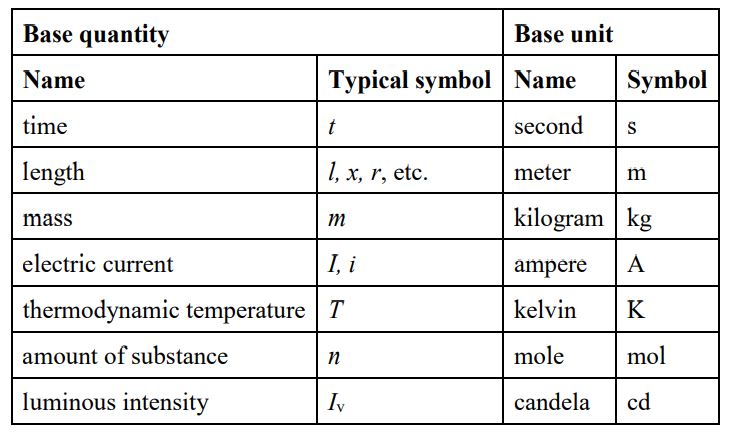A fundamental (or base) quantity in physics is a basic and essential physical property or dimension that cannot be defined in terms of other physical properties. These quantities are the building blocks upon which the entire system of measurement and units is constructed. They represent the most elementary aspects of the physical world and are typically independent of one another. In the International System of Units (SI), there are seven fundamental quantities: length, mass, time, electric current, temperature, amount of substance, and luminous intensity. These fundamental quantities provide a framework for describing and measuring various physical phenomena and are the starting point for deriving all other physical units.

